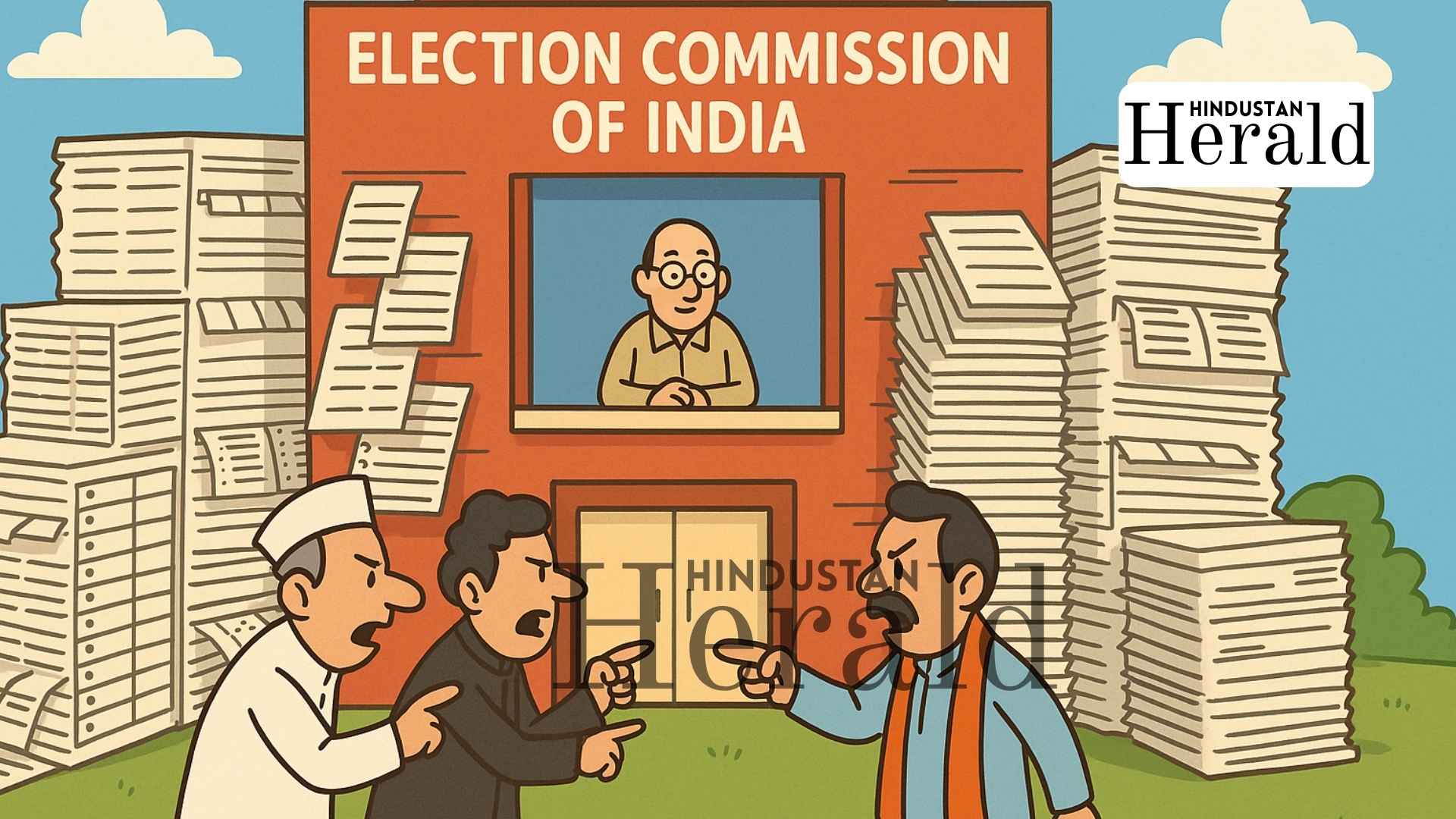New Delhi, October 28: No one expected the Election Commission of India to stay this quiet. Not when it’s running the biggest voter-roll revision in recent memory and definitely not when half the Opposition is accusing it of quietly deleting voters. Yet here we are: the Special Intensive Revision, or SIR, began this week across twelve states, and the Commission has barely said a word.
Sure, there was a circular. A few bureaucratic lines about timelines, Aadhaar verification, and the promise that this phase would “emphasise inclusion.” But no one from the top has faced the cameras, no one has walked people through what’s actually happening. It’s a strange kind of silence for an institution that once went out of its way to be seen as neutral and transparent.
The Work on the Ground
Across the states, the exercise looks like a logistical marathon. In Madhya Pradesh, over 5.7 crore voters are being covered by teams of Booth-Level Officers, who are trudging from door to door until early December. In Rajasthan, a new app feature called “Book a Call with BLO” allows people to update their voter details online. Over 5,000 have already done so. And in Uttar Pradesh, the numbers are staggering: more than 15 crore voters, 1.6 lakh polling stations, and a revision drive that feels like a mini-election in itself.
It’s supposed to be about inclusion, getting more people on the rolls, especially first-time voters. But that’s not how the headlines read.
Opposition parties are framing it as a purge. The DMK in Tamil Nadu has called it “a conspiracy to snatch away the rights of the poor.” Congress says the process lacks transparency. Smaller regional parties have been even more blunt, accusing the Commission of acting “under pressure.”
The ECI hasn’t answered those charges directly. Not even a quote.
A Familiar Quiet
This is not the first time the Commission has chosen to stay away from the noise. Traditionally, the ECI’s communication style has been stiff and procedural letters, circulars, and PDFs on its website. But what used to come across as dignity now reads like detachment.
Elections in India have changed. Misinformation spreads in minutes, and suspicion spreads faster than that. A single missing voter’s name can go viral before the local officer has even checked the list. In that environment, silence doesn’t look neutral anymore; it looks evasive.
One senior journalist covering the poll beat joked today, “The ECI’s biggest communication problem is that it still thinks we’re in 1998.” It’s a wry comment but it rings true.
Elsewhere, A Different Tune
Across the border, the Bangladesh Election Commission is making headlines for the opposite reason. It has just extended voting rights to around 15 million Bangladeshi expatriates, most of them migrant workers in the Gulf and Europe. The Commission there has been giving interviews, explaining logistics, talking openly about what could go wrong.
The contrast is hard to miss. Bangladesh is expanding its voter base and speaking to the public every step of the way. India is running one of the largest voter verification exercises on earth, and its top officials haven’t taken a single question.
One might argue that India’s ECI prefers caution that it doesn’t want to get dragged into political battles. Fair enough. But in 2025, silence carries its own political charge.
A Small Story That Says a Lot
Then came a curious little story that underlined the cracks in the system. Prashant Kishor, political strategist turned politician, found his name listed as a voter in two different states Bihar and West Bengal.
He says he applied to have one entry deleted, but the record still shows both. It’s an honest clerical mess, probably, but it raises an uncomfortable question: if even a well-known figure can end up double-registered, how messy are the records for the rest of us?
It’s the sort of thing the Election Commission should be explaining. Instead, the story sits there, unanswered, gathering political heat.
The Cost of a Quiet Commission
For decades, the ECI was one of India’s few untouchable institutions. Its word carried weight. You didn’t need a press conference; its circulars were gospel. But that trust was earned in a different time before hashtags, before suspicion became a default setting.
Today, silence feels like neglect. Voters are nervous about deletions, parties are shouting foul, and the institution that’s supposed to be the referee is choosing to stay off the field.
It’s not about taking sides, it’s about being visible. People need to hear from the Commission directly. They need to understand what’s being checked, how data is verified, and what to do if their name disappears. These are not partisan questions; they’re democratic ones.
Right now, those answers exist only in bureaucratic PDFs that most citizens will never read.
What’s at Stake
A voter-roll revision is, by design, a dull affair. It’s meant to tidy up data, fix errors, and register newcomers. But when faith in institutions is already fraying, even routine processes can look sinister.
Every election in India is a stress test for democracy, and this one begins months before ballots are cast in the lists that decide who gets to vote at all.
Maybe the Commission will speak up in the coming weeks. Maybe it’s waiting for the noise to die down. But every day it stays silent, it risks losing something it can’t afford to lose: public trust.
And in a democracy, that’s the only currency that counts.
Stay ahead with Hindustan Herald — bringing you trusted news, sharp analysis, and stories that matter across Politics, Business, Technology, Sports, Entertainment, Lifestyle, and more.
Connect with us on Facebook, Instagram, X (Twitter), LinkedIn, YouTube, and join our Telegram community @hindustanherald for real-time updates.
Covers Indian politics, governance, and policy developments with over a decade of experience in political reporting.






